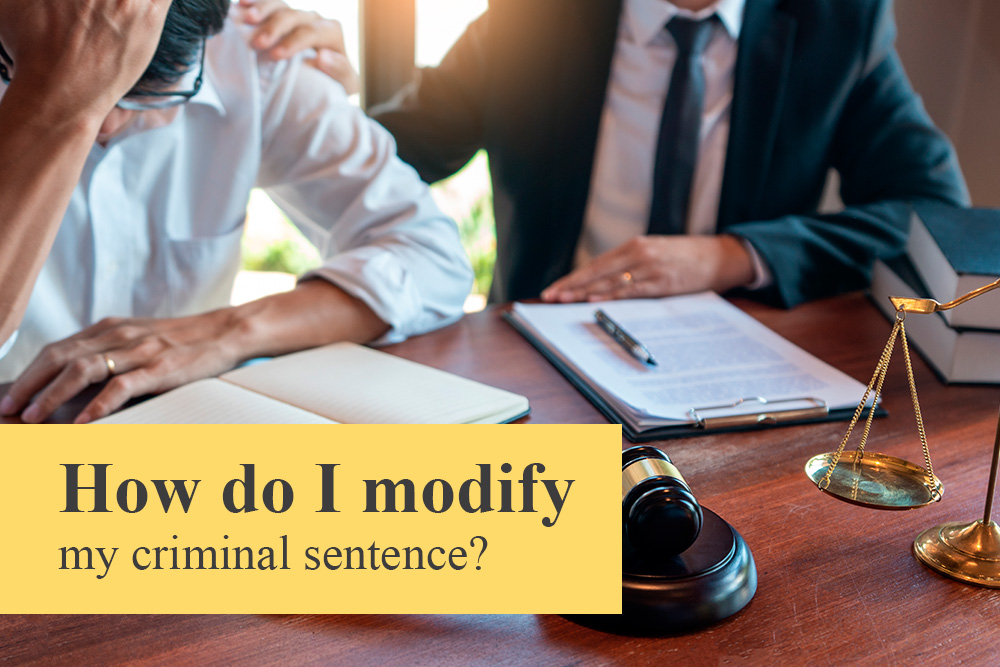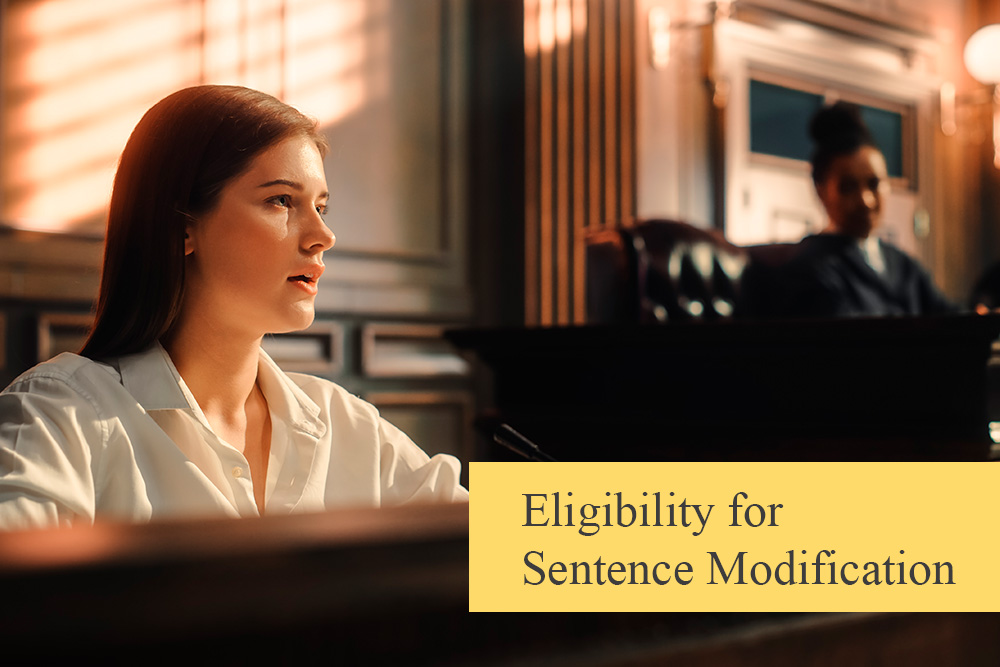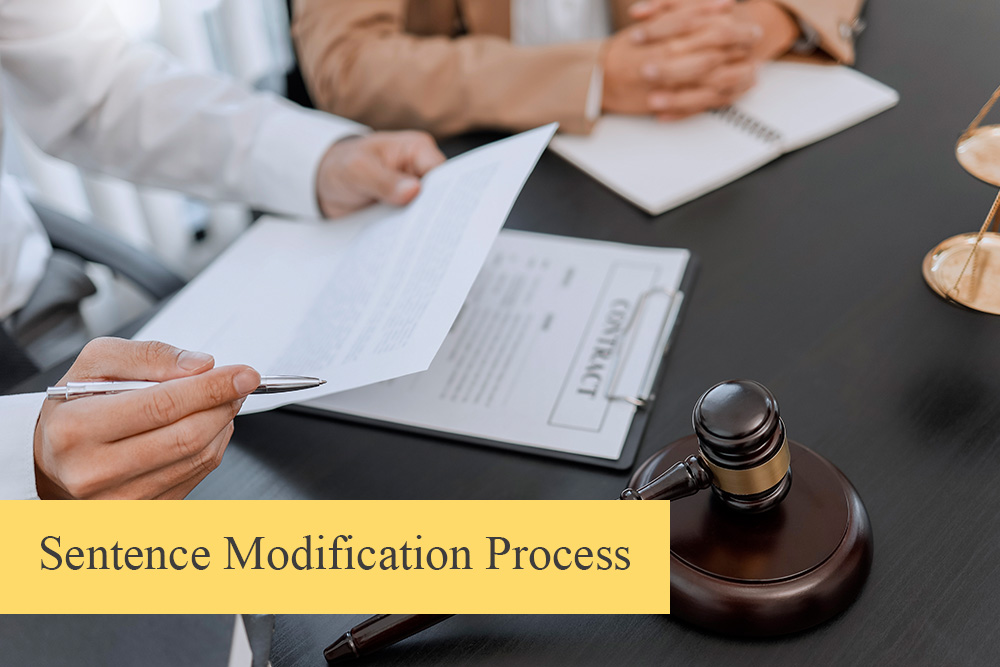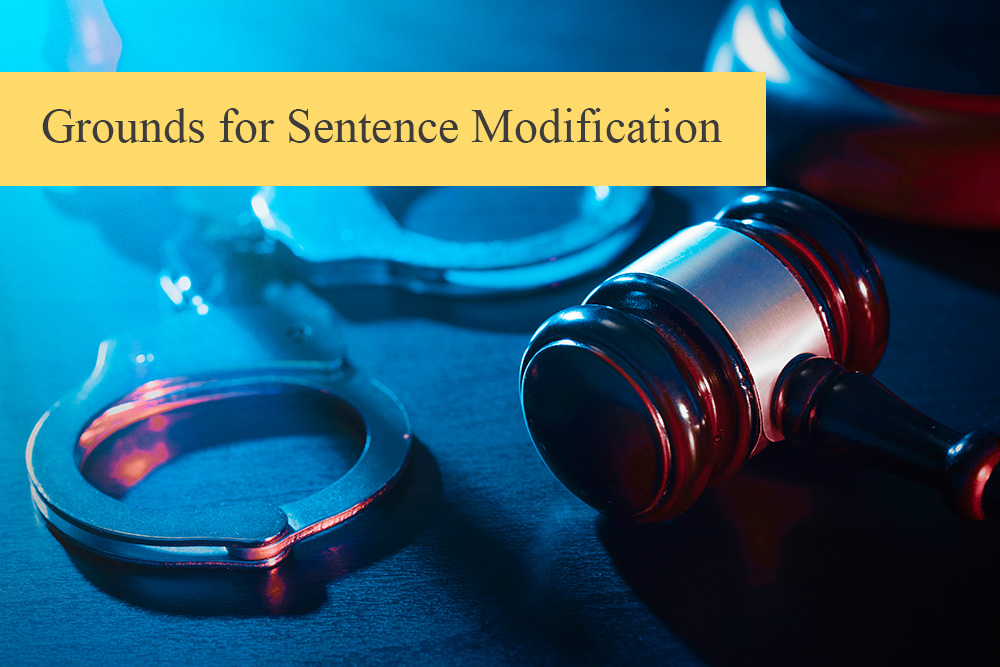How do I modify my criminal sentence?

Modification Of Criminal Sentence
A criminal conviction and resulting sentence are alarming events for a person to endure, and the sentence is not always the final word. Under certain circumstances, some people may pursue sentence modification, which, if successful, could reduce time behind bars or alter other terms, like the length of probation. An individual typically works closely with a criminal lawyer in Indiana when seeking sentence modification due to the highly technical nature of the undertaking. A criminal attorney must first determine if you legally qualify even to make the request and then potentially persuade a court to agree with the request.
Eligibility for Sentence Modification

Indiana Code Section 35-31.5-2-72 details the process of sentence modification and who is eligible. You should be aware that if you were convicted as a result of a plea agreement, then you could be ineligible. If you accepted a plea bargain that included a specific sentence, then you are obligated to complete that sentence because you agreed to it already. If you are uncertain whether your plea agreement disqualifies you from sentence modification, ask a criminal defense lawyer in Westfield to review your documentation.
As you might imagine, many violent offenders and sex offenders do not have access to the sentence modification process.
You may be eligible to seek sentence modification UNLESS you are convicted of:
- Child molestation offenses detailed in 35-31.5-2-72
- Murder
- Attempted murder
- Voluntary manslaughter
- Involuntary manslaughter
- Reckless homicide
- Aggravated battery
- Kidnapping
- Specific sex-related crimes
- Higher levels of robbery
- Higher levels of burglary
- Unlawful possession of a firearm by a serious violent felon
A criminal lawyer in Indiana can examine your case to see if your conviction is at least eligible for sentence modification. After that, a lawyer’s case evaluation could determine if you have grounds to proceed. When you do have an arguably legitimate reason to modify your sentence, then your criminal attorney can manage the process for you.
Sentence Modification Process

A sentence modification differs from an appeal. An appeal is a review of court and trial records to see if a serious error unfairly led to your conviction. Whether or not you tried to appeal your conviction does not mean you cannot ask for a sentence modification. Even if you did not have grounds to file an appeal, you might still have grounds to ask the court to alter your sentence.
After you and your criminal attorney determine that sentence modification is arguably possible, you must file the request with the trial court that ordered your sentence.
Next, the court will schedule a hearing unless the convicted person waives the right to attend the hearing or the prosecutor indicates in writing that the sentence modification is acceptable. Otherwise, the prosecutor informs the victims, if there are any, about the hearing. They then prepare evidence against the modification to present at the hearing.
At the hearing, the prosecutor may present evidence against the modification. At this point, the criminal lawyer in Indiana representing the convict explains why modification is appropriate.
The evidence for modification could include:
- Explanation of the convict’s circumstances and efforts at reform and rehabilitation
- Pertinent details about the case that led to the sentence
- New evidence that makes the existing sentence unfair
The court will conclude the hearing and, shortly after that, rule either for or against the modification. When approved, the judge issues a new sentencing order that reflects the changes granted by the court.
Learn what you can do if your license is suspended after an OWI case.
Grounds for Sentence Modification

The judicial system acknowledges multiple issues that could justify modifying someone’s sentence. A lawyer skilled at criminal defense in Westfield can explain if one or more of these issues apply to your case and offer an opinion on the likelihood of succeeding with your request.
New Information Relevant to the Criminal Case Has Emerged
Convictions and sentences are based on available and admissible evidence when the case is processed. Should new information come to light that was not previously available, or was ignored at the time of trial, then you will cite it as a reason to change your sentence.
Sentence Was Illegal or Erroneous
State and federal sentencing guidelines seek to impose some consistency on how people are sentenced for the same offenses. Although judges have some discretion in applying the guidelines, they still might deviate illegally from them or simply make a mistake. The presence of anything from an illegal decision to a simple clerical error could enable a convict to win the approval of a modification.
Guidelines are not just about applying a certain number of years in prison for a particular offense. Judges may consider the criminal history of the defendant and other influential circumstances. A sentence that does not appear to have been decided in a reasonable manner could convince a judge to modify the sentence.
Convict Has Demonstrated Substantial Self-Improvement
Correctional systems often allow prisoners a chance to improve themselves through educational programs, substance abuse counseling, therapy, or employment. A convict who has demonstrated character improvement and rehabilitation and behaved well might succeed in persuading a judge to alter the sentence.
Sentence Is Causing Substantial Hardship to Convict’s Family
Young children or disabled adults with no one to care for them might provide a viable reason for sentence modification. Unless the circumstances are extreme, a criminal lawyer in Indiana would probably view this reason as a long shot. Technically, almost any inmate’s family suffers hardship due to the person’s incarceration.
New Laws Have Changed Sentencing Guidelines Since Conviction
From time to time, laws are updated to reflect new views on how to apply criminal penalties. For example, in 2014, Indiana altered how it classifies felonies, and the recommended sentences changed somewhat. Additionally, federal sentencing reforms have downgraded sentences for some drug offenses. If sentencing reform applies to your case, this is a viable reason to pursue modification if people currently sentenced for your offense receive shorter sentences.
Convict Is Terminally Ill, Over Age 70, or Cognitively Impaired
A court may modify a sentence if the convict is expected to die of disease soon, has reached an advanced age, or can no longer perform at an average cognitive level. As long as the person is not perceived as a threat to society, a judge might agree to release the prisoner.
Explore the Possibility of Sentence Modification
Webster & Garino, LLC provides criminal defense in Westfield. Our commitment to your rights does not cease even if you are convicted. Whenever possible, we are available to help you petition the court for sentence modification. To discuss your case with an experienced criminal attorney, call 317-565-1818 or email our office today.

